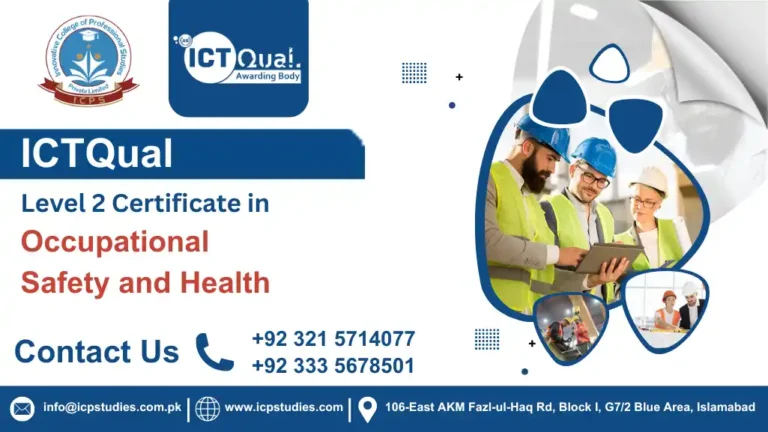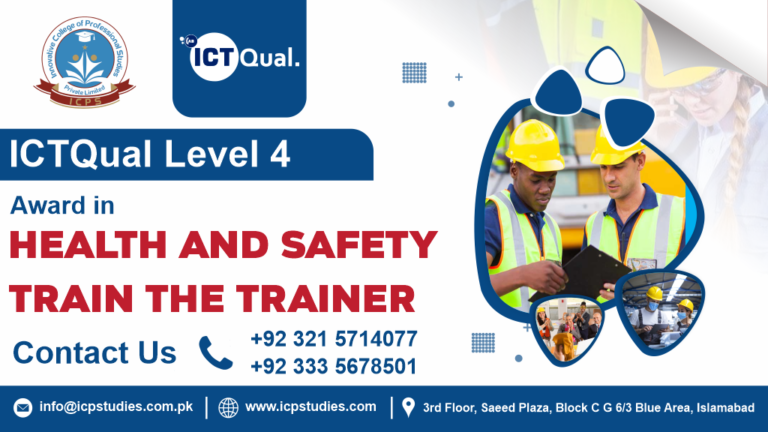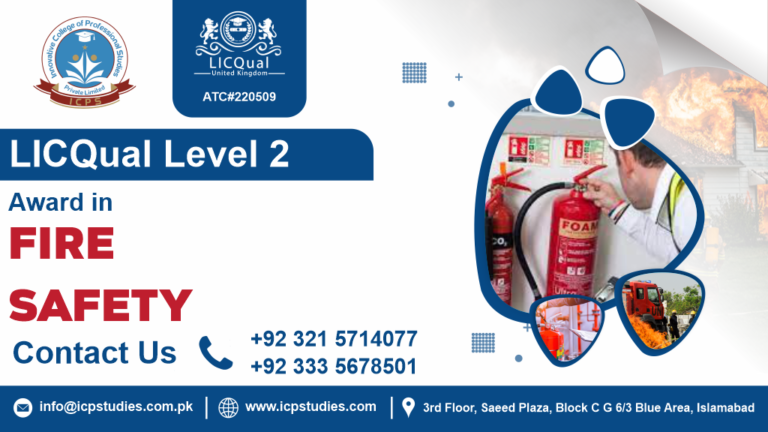In the dynamic world of construction, safety is paramount. Whether you’re a seasoned professional or new to the industry, understanding and implementing rigorous safety protocols is essential. That’s where the Level 2 Award in Scaffolding Safety comes into play. This certification not only enhances your knowledge but also equips you with the skills to ensure secure scaffolding operations on any construction site.
The Level 2 Award in Scaffolding Safety is a specialized qualification designed to educate individuals on the safe assembly, use, and inspection of scaffolding systems. Recognized internationally, this certification is crucial for anyone involved in construction, from workers and supervisors to safety officers and inspectors.
Level 2 Award in Scaffolding Safety not only enriches your professional portfolio but also reinforces your commitment to safety excellence in the construction industry. With rigorous training and certification, you’ll play a vital role in creating safer workplaces, protecting lives, and ensuring compliance with regulatory requirements. Ready to elevate your safety skills? Enroll in the Level 2 Award in Scaffolding Safety today and embark on a path towards safety mastery in construction.
All About ICTQual Level 2 Award in Scaffolding Safety
Course Overview
The Level 2 Award in Scaffolding Safety is a specialized certification aimed at individuals working in or aspiring to work in the construction industry, particularly in roles involving scaffolding operations. This qualification is designed to provide comprehensive training and assessment in the safe assembly, use, inspection, and dismantling of scaffolding structures.
Level 2 Award in Scaffolding Safety is a valuable certification that equips individuals with the necessary knowledge and skills to ensure safe scaffolding operations. It plays a critical role in promoting workplace safety, protecting lives, and maintaining regulatory compliance within the construction industry.
Study Units
- Fundamentals of Scaffolding Safety
- Scaffolding Legislation and Standards
- Scaffolding Components and Structures
- Safety Procedures and Protocols
- Risk Assessment and Hazard Mitigation
- Personal Protective Equipment (PPE) Usage
- Emergency Response and Rescue Procedures
- Documentation and Reporting
- Practical Skills Training
Admission Criteria
This course on scaffolding safety is designed for individuals who are involved in or seeking to enter the construction industry, particularly those who work with scaffolding or oversee scaffolding operations. It is suitable for:
- Construction Workers: Individuals directly engaged in scaffold erection, alteration, dismantling, or maintenance.
- Site Supervisors and Managers: Personnel responsible for overseeing construction projects where scaffolding is utilized.
- Safety Officers and Inspectors: Professionals tasked with ensuring compliance with safety regulations and conducting inspections of scaffolding.
- Health and Safety Personnel: Individuals responsible for developing and implementing safety protocols within construction companies or organizations.
- Apprentices and Trainees: Those undergoing training or apprenticeships in construction trades involving scaffolding.
- Regulatory Compliance Personnel: Individuals involved in ensuring adherence to scaffolding regulations and standards set by authorities.
- Anyone Interested in Scaffolding Safety: Individuals interested in acquiring knowledge and skills related to scaffolding safety practices, regardless of their current occupation, to contribute to safer working environments.
This course caters to a diverse audience within the construction industry, providing essential knowledge and skills to enhance safety, compliance, and efficiency in scaffolding operations.
Ideal Candidate
Entry requirements for a course on scaffolding safety typically include:
- Educational Background:
- High school diploma or equivalent (required for understanding course materials and assessments).
- Language Proficiency:
- Proficiency in the language of instruction (typically English) to comprehend course content and participate effectively.
- Health and Physical Fitness:
- Ability to work at heights and in physically demanding environments (as scaffolding work involves climbing and manual labor).
- Legal Requirements:
- Compliance with legal age requirements for working in construction environments (usually 18 years or older).
- Experience or Training:
- Some courses may require prior experience or training in construction-related fields, though this can vary based on the course level (introductory vs. advanced).
- Safety Awareness:
- Basic understanding of workplace safety practices and awareness of occupational hazards.
- Documentation:
- Some courses may require participants to provide documentation of relevant certifications or prior training in related fields (e.g., construction safety, equipment operation).
- Specific Requirements:
- Depending on the course provider or regulatory requirements, there may be additional specific prerequisites such as a valid driver’s license, medical clearance, or specific certifications (e.g., first aid).
These entry requirements ensure that participants have the foundational knowledge, skills, and abilities necessary to engage effectively in learning about scaffolding safety procedures and practices. Meeting these requirements helps to ensure a safe and productive learning environment for all participants.
Learning Outcome
- Fundamentals of Scaffolding Safety
- Understand the importance of scaffolding safety in construction.
- Identify common hazards associated with scaffolding activities.
- Describe key safety principles and practices relevant to scaffolding operations.
- Scaffolding Legislation and Standards
- Explain relevant legal requirements and regulations pertaining to scaffolding.
- Identify industry standards and guidelines for scaffolding safety.
- Understand the responsibilities of employers, supervisors, and workers in complying with scaffolding legislation.
- Scaffolding Components and Structures
- Identify and describe different types of scaffolding components.
- Understand the functions and limitations of scaffolding structures.
- Demonstrate knowledge of scaffold design considerations and load capacities.
- Safety Procedures and Protocols
- Follow safe procedures for scaffold assembly, alteration, use, and dismantling.
- Implement safe working practices when accessing and working on scaffolding.
- Utilize safety equipment and tools effectively during scaffolding operations.
- Risk Assessment and Hazard Mitigation
- Conduct risk assessments specific to scaffolding activities.
- Identify potential hazards associated with scaffolding and scaffolding work environments.
- Implement control measures to mitigate risks and prevent accidents.
- Personal Protective Equipment (PPE) Usage
- Identify appropriate PPE required for scaffolding operations.
- Demonstrate correct selection, fitting, and use of PPE.
- Understand the importance of PPE in preventing injuries and maintaining personal safety.
- Emergency Response and Rescue Procedures
- Describe emergency procedures specific to scaffolding incidents.
- Demonstrate knowledge of rescue and evacuation procedures.
- Coordinate and respond effectively to emergencies involving scaffolding.
- Documentation and Reporting
- Maintain accurate records of scaffolding inspections, maintenance, and incidents.
- Prepare clear and concise reports related to scaffolding safety and compliance.
- Understand the importance of documentation in demonstrating regulatory compliance and accountability.
- Practical Skills Training
- Demonstrate proficiency in assembling, altering, and dismantling scaffolding structures.
- Practice safe climbing, working, and maneuvering techniques on scaffolding.
- Apply theoretical knowledge to practical scenarios in scaffolding operations effectively.
These learning outcomes are designed to ensure comprehensive understanding and competency in scaffolding safety, covering both theoretical knowledge and practical skills necessary for safe and compliant scaffolding operations in the construction industry.
FAQs about ICTQual Level 2 Award in Scaffolding Safety







